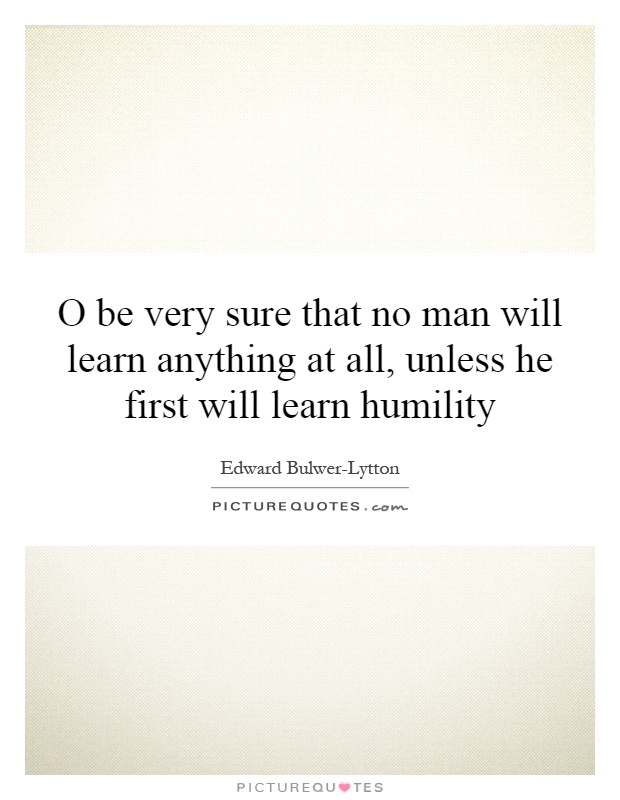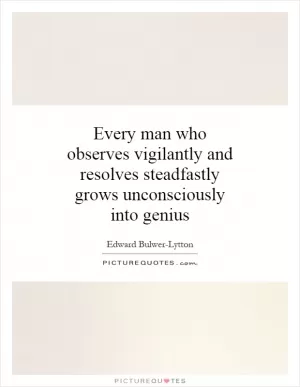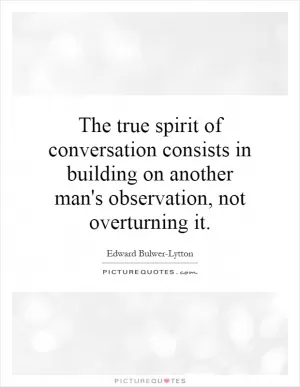O be very sure that no man will learn anything at all, unless he first will learn humility

O be very sure that no man will learn anything at all, unless he first will learn humility
Edward Bulwer-Lytton, a renowned English novelist and politician, once said, "O be very sure that no man will learn anything at all, unless he first will learn humility." This statement holds a profound truth that is applicable in various aspects of life, including education, personal growth, and relationships.Humility is often seen as a virtue that is essential for learning and growth. It is the quality of being humble, modest, and open to new ideas and perspectives. Without humility, a person may be closed off to new information, unwilling to admit their mistakes, and resistant to change. In the context of education, humility is crucial for effective learning. A humble student is willing to listen to their teachers, ask questions, and accept feedback. They are open to learning from their mistakes and are not afraid to admit when they do not know something. This attitude of humility allows them to absorb new information and expand their knowledge.
In the context of personal growth, humility plays a vital role in self-improvement. A humble person is willing to acknowledge their weaknesses and work on them. They are open to feedback and constructive criticism, which helps them to identify areas for improvement. By being humble, a person can learn from their experiences, grow as an individual, and become a better version of themselves.












 Friendship Quotes
Friendship Quotes Love Quotes
Love Quotes Life Quotes
Life Quotes Funny Quotes
Funny Quotes Motivational Quotes
Motivational Quotes Inspirational Quotes
Inspirational Quotes